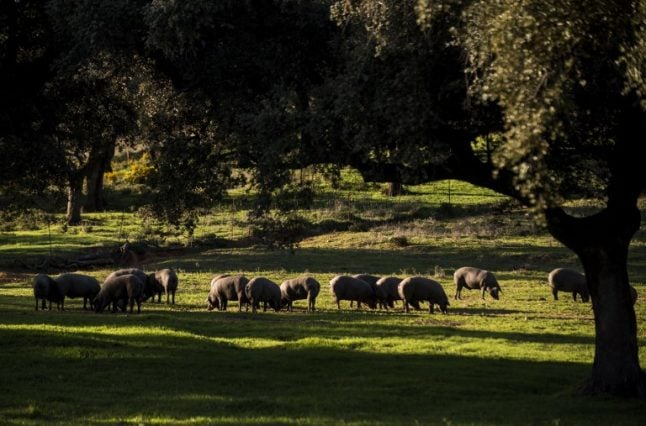A report produced for the Environment ministry has revealed that in 2017, the number of pigs slaughtered for pork products exceeded 50 million, 3.5 million more than the 46.5 million human population of Spain
Spain has seen a surge in pork production over the last five years to meet a growing export demand from China, the report found.
READ MORE: Spain's 'jamon' conquers China

File photo: Subbotina/Depositphotos
Of the 4.3 million tons of pork meat produced last year – 20 percent more than in 2012 – only a quarter is eaten within Spain, where each Spaniard consumes an average of 21kg of pork annually.
The vision of free-range pigs happily roaming across Spain’s dehesas is in stark contrast with the fact that the majority of pork products comes from factory-farmed animals.
Just a tiny percentage of pork consumed derives from the pure-bred acorn fed Iberian pig that is famous for producing the best jamon serrano.
But although the industry generated a whopping €6 billion last year, concerns are mounting over the detrimental effect of so many pigs on the environment.
Livestock in Spain now generates 10 percent of greenhouse gas emissions, the fourth largest producer after transport, electricity generation and industry.
Environmentalists have also raised concerns over the strain pig farming places on drought-prone areas of Spain. Each animal consumes 15 litres a day, meaning the industry as a whole uses more water than the cities of Seville, Alicate and Zaragoza combined.
Ground water is also at risk of contamination from nitrates in animal waste, warn NGO Ecologists in Action.
Spain’s environment ministry announced soon after taking office in June, that it was planning new controls on pig farming to improve “hygiene, animal health and welfare and the environment”.
READ ALSO: Ten 'ham'-azing things you really need to know




 Please whitelist us to continue reading.
Please whitelist us to continue reading.